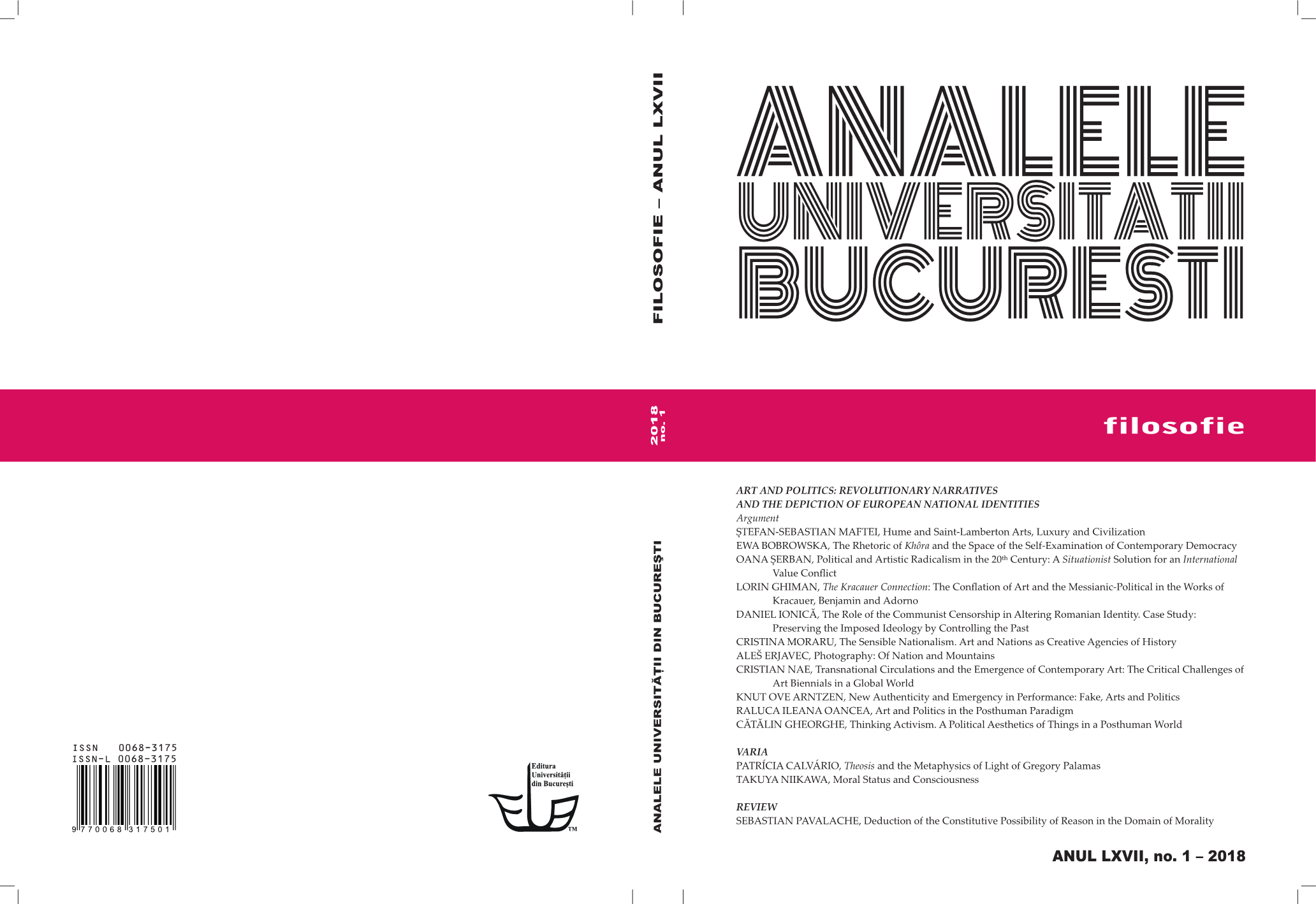The Rhetoric of Khôra and the Space of the Self- Examination of Contemporary Democracy
The Rhetoric of Khôra and the Space of the Self- Examination of Contemporary Democracy
Author(s): Ewa BobrowskaSubject(s): Politics / Political Sciences, Philosophy, Fine Arts / Performing Arts
Published by: Editura Universităţii din Bucureşti
Keywords: democracy;arts;plurality;novelty;
Summary/Abstract: This paper examines the Greek concept of khôra, as presented in Plato’ Timaeus, in its function as a prerequisite and spatial image of contemporary democracy, with regard to the interrelation between the notions of space and freedom. The topography of liberty is considered in the light of Jean-Luc Nancy’s The Experience of Freedom, Jacques Derrida’s essays Khôra and Rogue, Richard Rorty’s Contingency, Irony, and Solidarity, Paul Gilroy’s Postcolonial Melancholia, Michel Foucault’s Fearless Speech, Julia Kriesteva’s Polylogue, as well as the images of contemporary democracy depicted by Geoffrey Bennington, Jonathan Culler, Samuel Weber, Stanisław Kijaczko, and Krzysztof Piotr Skowroński. The artistic context of Ann Hamilton’s The Event of a Thread and Leonardo Da Vinci’s Mirror Chamber give additional evidence to the argument. Khôra resists description and understanding, relying on a peculiarly uncommon combination of qualities and characteristics exhibiting both flexibility and resistance. One may claim that the flexibility and universality of khôra give rise to law and order in general; therefore it might be viewed as a prefiguration of democracy. Its structure – the machinery based on chance and on a free play of multiple elements – is never complete and her final architecture resembles the workings of a democratic system based on various parts acting and interacting freely in the flexible, undefined receptacle of a society.
Journal: Analele Universității din București – Seria Filosofie
- Issue Year: 67/2018
- Issue No: 1
- Page Range: 25-45
- Page Count: 20
- Language: English

